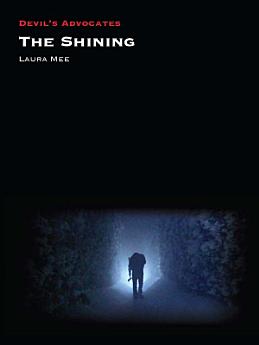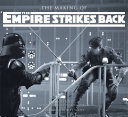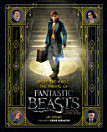The Shining
Laura Mee
ກ.ຍ. 2017 · Liverpool University Press
ປຶ້ມອີບຸກ
111
ໜ້າ
reportບໍ່ໄດ້ຢັ້ງຢືນການຈັດອັນດັບ ແລະ ຄຳຕິຊົມ ສຶກສາເພີ່ມເຕີມ
ກ່ຽວກັບປຶ້ມ e-book ນີ້
Taking a fresh look at The Shining (1980), this book situates the film within the history of the horror genre and examines its rightful status as one of the greatest horror movies ever made. It explores how Stanley Kubrick's filmmaking style, use of dark humor, and ambiguous approach to supernatural storytelling complements generic conventions, and it analyzes the effective choices made in adapting King's book for the screen—stripping the novel's backstory, rejecting its clear explanations of the Overlook Hotel's hauntings, and emphasizing the strained relationships of the Torrance family. The fractured family unit and patriarchal terror of Kubrick's film, alongside its allusions to issues of gender, race, and class, connect it to themes prevalent in horror cinema by the end of the 1970s, and are shown to offer a critique of American society that chimed with the era's political climate as well as its genre trends. The film's impact on horror cinema and broader pop culture is ever apparent, with homages in everything from Toy Story to American Horror Story. The Shining showed that popular, commercial horror films could be smart, artistic, and original.
ກ່ຽວກັບຜູ້ຂຽນ
Laura Mee is a lecturer in film and television at the University of Hertfordshire, whose research focuses on horror and adaptation. She is the coeditor of Cinema, Television and History: New Approaches (2014), and has published articles on Room 237 (2012) and various horror remakes.
ໃຫ້ຄະແນນ e-book ນີ້
ບອກພວກເຮົາວ່າທ່ານຄິດແນວໃດ.
ອ່ານຂໍ້ມູນຂ່າວສານ
ສະມາດໂຟນ ແລະ ແທັບເລັດ
ຕິດຕັ້ງ ແອັບ Google Play Books ສຳລັບ Android ແລະ iPad/iPhone. ມັນຊິ້ງຂໍ້ມູນໂດຍອັດຕະໂນມັດກັບບັນຊີຂອງທ່ານ ແລະ ອະນຸຍາດໃຫ້ທ່ານອ່ານທາງອອນລາຍ ຫຼື ແບບອອບລາຍໄດ້ ບໍ່ວ່າທ່ານຈະຢູ່ໃສ.
ແລັບທັອບ ແລະ ຄອມພິວເຕີ
ທ່ານສາມາດຟັງປຶ້ມສຽງທີ່ຊື້ໃນ Google Play ໂດຍໃຊ້ໂປຣແກຣມທ່ອງເວັບຂອງຄອມພິວເຕີຂອງທ່ານໄດ້.
eReaders ແລະອຸປະກອນອື່ນໆ
ເພື່ອອ່ານໃນອຸປະກອນ e-ink ເຊັ່ນ: Kobo eReader, ທ່ານຈຳເປັນຕ້ອງດາວໂຫຼດໄຟລ໌ ແລະ ໂອນຍ້າຍມັນໄປໃສ່ອຸປະກອນຂອງທ່ານກ່ອນ. ປະຕິບັດຕາມຄຳແນະນຳລະອຽດຂອງ ສູນຊ່ວຍເຫຼືອ ເພື່ອໂອນຍ້າຍໄຟລ໌ໄໃສ່ eReader ທີ່ຮອງຮັບ.





